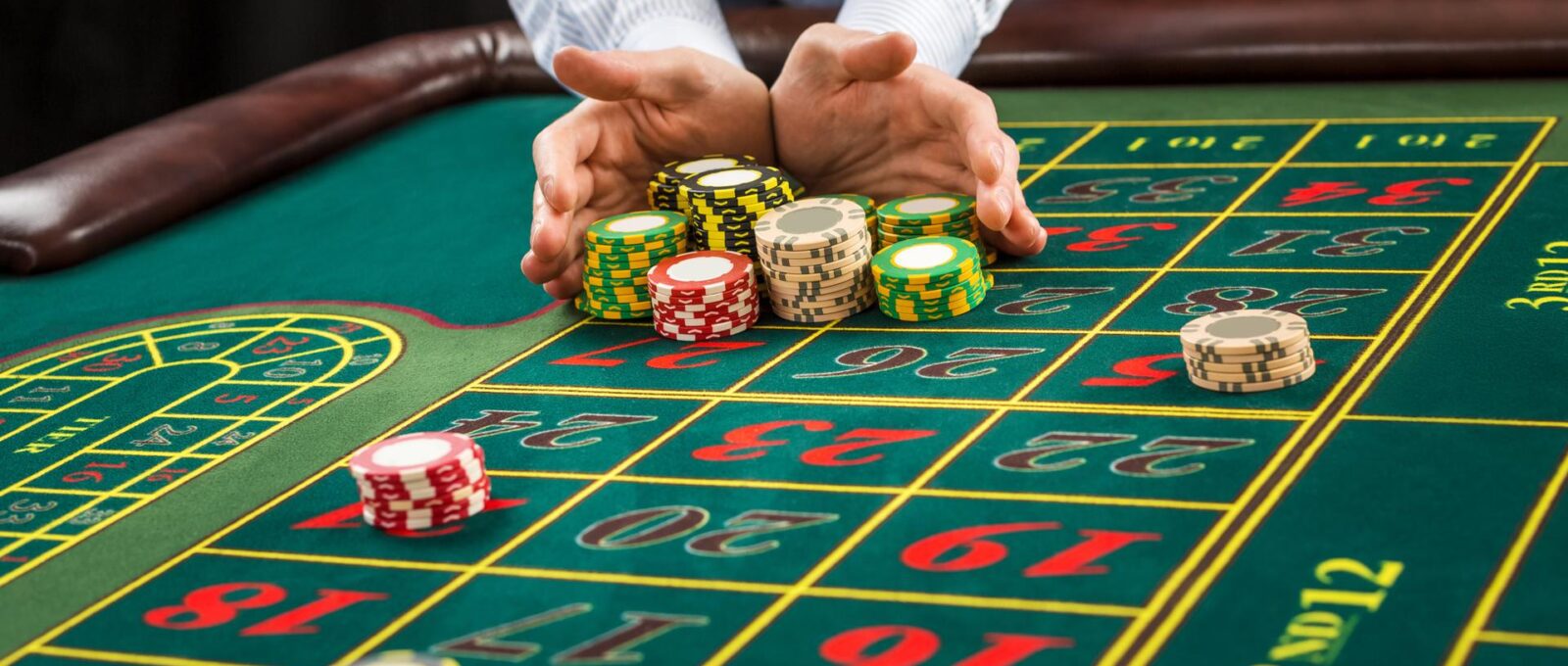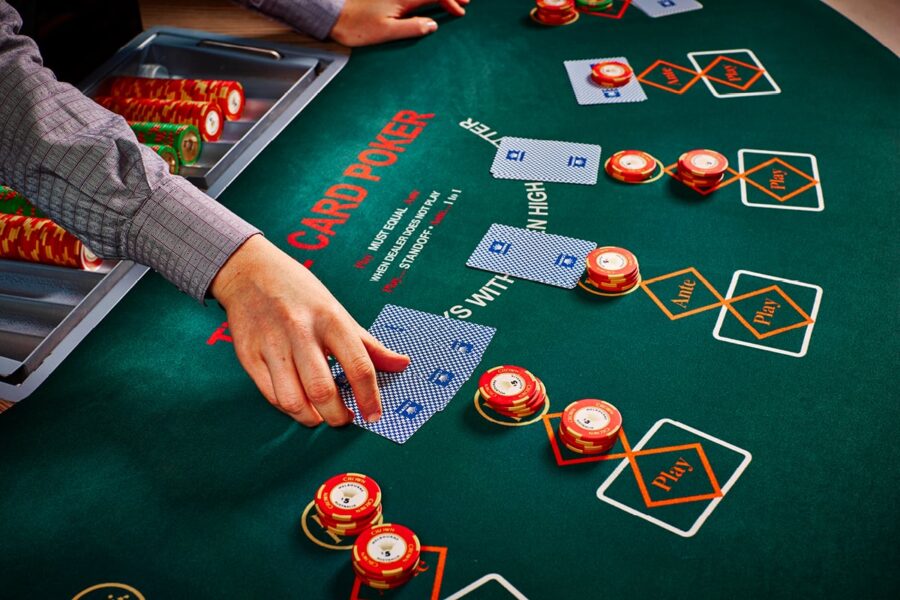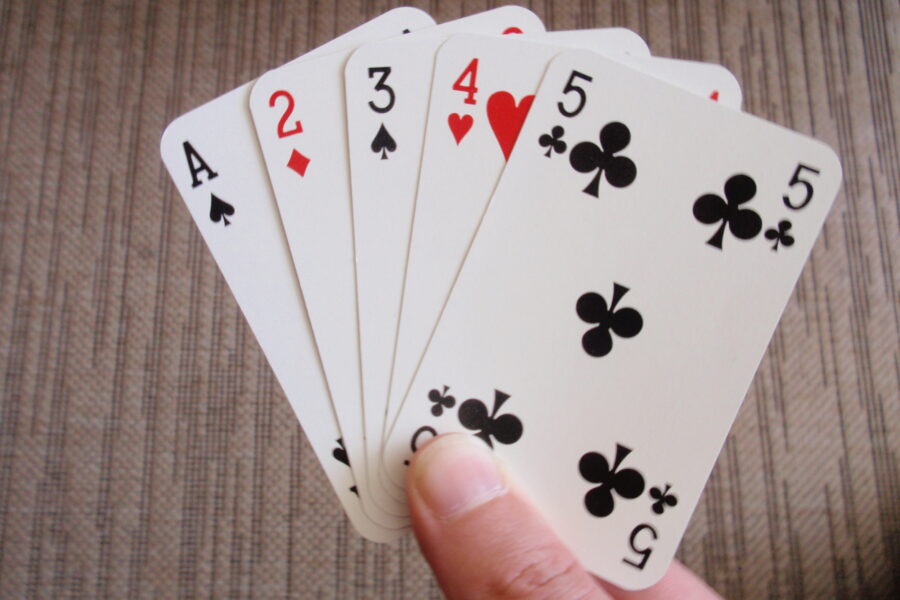Does Poker Lead to Addiction?
Poker is one of the oldest and most well-known card games in the world, combining elements of strategy, psychology, and, of course, chance. In its classic forms, such as Texas Hold’em or Omaha, players compete by trying to obtain the best hand or by skillfully bluffing to force their opponents to fold. Poker’s popularity stems not only from its dynamic nature but also from the fact that skill and experience can significantly outweigh pure luck.
Poker can be divided into various variations, each with its unique rules and dynamics. The most popular are the aforementioned Texas Hold’em, which dominates international tournaments, and Omaha, where players receive more private cards, increasing strategic possibilities. Regardless of the variation, the goal of the game is to win the pot—the sum of money bet by all players in a given hand.
The Phenomenon of Gambling Addiction
The phenomenon of gambling addiction, also known as pathological gambling, is a serious mental health issue affecting millions of people worldwide. It is a disorder characterized by an uncontrollable urge to gamble, despite negative consequences. Those addicted to gambling often neglect their personal lives, careers, and even health to continue playing.
Although poker differs from other forms of gambling like slot machines or roulette, it can still lead to addiction. Its uniqueness lies in the fact that it involves not only chance but also intense interaction with other players, which can amplify the emotions and adrenaline accompanying each hand. For some players, the competition, the desire to prove their superiority, and the hope of a big win can become a trigger for regular participation in the game, which over time may lead to addiction.
Poker as a Form of Gambling
Elements of Gambling in Poker
Poker, though often seen as a game of skill and strategy, inherently contains elements of gambling, making it a high-risk game. Unlike other card games like bridge, poker involves players betting their money or chips on the outcome of hands, adding excitement and intensity to each game.
The primary element of gambling in poker is the unpredictability stemming from the randomness of the dealt cards. Regardless of a player’s skill and experience, there is no way to predict which cards will land in their hand or appear on the table. This uncertainty creates tension, which can be both exciting and potentially dangerous. Players must balance their trust in their abilities with the awareness that luck can determine their win or loss.
Another significant gambling aspect of poker is the wagering of money. Each hand requires players to bet a certain amount, meaning there is always a risk of losing their stake. This risk is a key element of the game—it makes poker so thrilling but can also lead to serious problems if not properly controlled. The higher the stakes, the greater the risk and the potential losses.
The role of bluffing in poker as a gambling element is also crucial. Bluffing is a strategy where a player tries to convince their opponents that they have a stronger hand than they actually do. It is a risky technique because if the opponent does not fall for it, the player can lose significant sums of money. Bluffing adds another layer of uncertainty and gambling to the game, increasing its complexity and appeal.
Differences Between Poker and Other Gambling Games
Although poker is a gambling game, it differs significantly from other popular casino games like roulette, blackjack, or slot machines. These differences have a substantial impact on how poker engages players and how it can potentially lead to addiction.
One of the key differences is the influence of skill on the outcome of the game. Unlike games like roulette, where the outcome is entirely random, poker involves experience, strategy, and the ability to read opponents playing a major role. A skilled poker player who knows the game well can consistently win, even if the cards are not always in their favor. This ability to partially control the outcome distinguishes poker from other gambling games, where the player is entirely dependent on luck.
Another difference is the human interaction involved. In poker, unlike most other gambling games, players compete directly against each other, not against the casino. This means that success in poker often depends on psychological skills, such as the ability to bluff, anticipate the opponent’s moves, and control one’s emotions. Such interaction makes poker more engaging but can also lead to more intense emotions, contributing to the development of addiction.
The financial structure of the game is also different. In typical casino games like roulette, a player bets a certain amount of money on the outcome of a single spin or hand. In poker, however, players often engage in longer sessions, with multiple rounds of betting in each hand. This means that poker requires players to have greater discipline and money management skills, as losses can accumulate gradually rather than immediately as in other games.
Ultimately, these differences make poker a unique gambling game—more complex, engaging, and potentially more emotionally and financially risky. Understanding these differences is crucial for anyone considering playing poker, as it allows for a conscious approach to the risks associated with this form of entertainment.
What Is Gambling Addiction?
Gambling addiction, also known as pathological gambling, is a serious mental disorder that affects a person’s ability to control their impulses related to betting money. The World Health Organization (WHO) and the American Psychiatric Association recognize gambling addiction as a disease, including it in the International Classification of Diseases (ICD) and the Diagnostic and Statistical Manual of Mental Disorders (DSM). People affected by this problem cannot stop gambling, even though they are fully aware of the negative consequences of their behavior.
Pathological gambling is characterized by an inability to quit gambling, leading to severe consequences in personal, professional, and social life. An addicted person often neglects their duties, relationships with loved ones, and even their health to continue playing. This addiction can lead to long-term financial problems, debt, and even bankruptcy.
Symptoms of Addiction
Gambling addiction manifests in many ways, and its symptoms can vary from person to person. However, there are some universal signs that may indicate the development of this disorder.
- Obsessive Thinking About Gambling: An addicted person often thinks about previous games, plans future sessions, and wonders how to get money for the next bets.
- Lack of Control Over Gambling: Despite attempts to limit or stop gambling, the addicted person cannot control their habit. Every win motivates further play, and every loss becomes a reason to try to recover lost funds.
- Neglecting Responsibilities: Addiction leads to neglect of professional, family, and social obligations. An addicted person may avoid work, school, or meetings with loved ones to spend more time gambling.
- Financial Problems: Addicted people often borrow money, sell valuable items, or fall into debt to have funds for further gambling. Some may even resort to fraud or theft to obtain money for gambling.
- Emotional Issues: Gambling addiction often leads to anxiety, depression, guilt, and shame. Addicted individuals may feel hopeless and lose their sense of self-worth.
- Social Isolation: As the addiction deepens, the addicted person may isolate themselves from family and friends, avoid social situations, and spend most of their time gambling.
Phases of Gambling Addiction Development
Gambling addiction develops gradually and usually goes through several phases, each characterized by different levels of involvement and destruction in the addicted person’s life.
- Recreational Phase: Initially, gambling is just a form of entertainment. The person plays occasionally, does not have high hopes for profit, and treats any losses as the cost of fun. At this stage, there are no negative consequences.
- Risk Phase: In this phase, the person starts gambling more frequently, the stakes increase, and the game becomes more intense. There is a belief that gambling can solve financial problems or achieve quick profits. Early losses are often downplayed or attributed to bad luck.
- Crisis Phase: At this stage, the addicted person begins to experience serious consequences of their habit. Financial problems, debts, and conflicts with family and loved ones arise. The addicted person may feel desperate but still cannot stop gambling.
- Desperation Phase: In this final phase, the addiction completely takes over the person’s life. Gambling becomes the priority, and all other aspects of life are neglected. Severe mental problems may arise, as well as risks associated with crime, job loss, bankruptcy, or even suicide.
Does Poker Lead to Addiction?
Psychology of Poker
Poker is a game that not only tests players’ strategic and mathematical skills but also has a strong impact on their psychology. Unlike other gambling games, poker requires players to constantly analyze the situation, make quick decisions, and interpret opponents’ behaviors. This makes poker engage emotions and the mind at a much deeper level, which can lead to addiction.
One of the key psychological aspects of poker is the variable reward effect. Players never know when they will hit a winning hand, creating intense anticipation. Such random rewards are among the most addictive. They give players a feeling of euphoria and fulfillment, which they want to repeat, potentially leading to compulsive gambling.
Another important aspect is the element of competition and the desire to dominate other players. Poker is a game where players compete directly against each other, not against a machine or casino. This direct competition can evoke strong emotions, such as the desire for revenge after a loss, which can lead to a cycle of continued play to recover lost money and prove superiority.
Bluffing, which is an integral part of poker strategy, also plays a significant role in the psychology of the game. Players must not only manipulate their opponents but also control their own emotions to avoid revealing their intentions. This constant game of deception can lead to stress, which paradoxically can motivate further play to prove one’s ability to “read” opponents.
Factors Contributing to Addiction
Several factors can increase the risk of poker addiction. While not every player will become addicted, certain personality traits, environments, and life circumstances can predispose someone to develop this problem.
The first of these factors is the player’s personality. Impulsive individuals who seek intense experiences and have a low tolerance for boredom are more prone to gambling addiction, including poker. These players often seek intense emotions and easily get caught up in the dynamics of the game, which provides them with the necessary stimuli.
Another important factor is the social environment. Playing poker in a group of friends or in a community where gambling is accepted and promoted can lead to more frequent gambling and a higher risk of addiction. The influence of media, which often idealizes the image of the successful poker player, can also increase pressure to achieve similar results, which in reality may be illusory and lead to problems.
The availability of the game also plays a significant role. In the age of the internet, online poker has become extremely popular, and the ability to play 24/7 without leaving home increases the risk of addiction. Players can easily lose track of time and control over their actions, leading to prolonged gaming sessions and growing financial losses.
Another important factor is life circumstances. People experiencing difficulties such as financial, professional, family, or emotional problems may turn to poker as an escape. For many, the game becomes a way to forget their problems, leading to gambling addiction.
Scientific Research and Statistics
In recent years, many studies on poker addiction have confirmed that this game can be just as addictive as other forms of gambling. Research indicates that about 2-3% of the gambling population may suffer from gambling-related problems, with online poker posing a particular risk due to its availability and anonymity.
In a study conducted by researchers at the University of Bergen, it was found that online poker players are more prone to developing addiction than those who play in traditional casinos. This study also revealed that young men aged 18-30 are the highest-risk group, related to their natural tendency for competition and seeking intense emotions.
Other studies show that poker addiction develops more quickly than with other gambling games because players are more frequently exposed to quick losses and wins, which can amplify emotions and the desire to continue playing. Regular participation in poker tournaments, both online and live, can increase the risk, especially among those who already have tendencies toward compulsive behavior.
Statistics also indicate that poker addiction is often associated with other mental health issues, such as depression, anxiety, or personality disorders. The high stakes and tension related to the game can exacerbate these problems, creating a vicious cycle that is difficult to break without proper support and treatment.







Leave a Comment